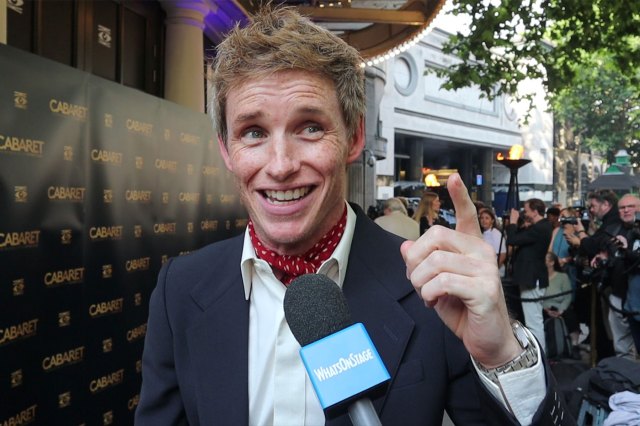Dan Rebellato On … Chekhov Now
Dan Rebellato’s Chekhov in Hell receives its London premiere at the Soho Theatre from 26 April (previews from 20 April) to 14 May 2011 following a successful run at the Drum Theatre, Plymouth.
Rebellato’s previous plays include Here’s What I Did With My Body One Day, Mile End, Static, Theatremorphosis, Beachy Head, Futurology and A Modest Adjustment. He is currently under commission for Radio 4 and the National Theatre as well as teaching at Royal Holloway and University of London.
Chekhov in Hell has a cast that includes Jonathan Broadbent, Ruth Everett, Geoffrey Lumb, Emily Raymond and Paul Rider. It is directed by Theatre Royal Plymouth artistic director Simon Stokes with design by Bob Bailey, lighting by Natasha Chivers and sound by Adrienne Quartly.
Here Dan gives us an insight into the mind of one of greatest storytellers of world literature.
Richard Curtis’s Doctor Who episode last year brought Vincent Van Gogh back to see, 120 years after his death, how loved he was. I admit it, I welled up. The idea of taking someone reviled in their lifetime and celebrated now and showing that that history recorded them as the victor. Imagine showing Oscar Wilde how loved and admired he is. I wonder how Emily Dickinson would feel knowing that she would be posthumously acclaimed as one of America’s finest poets.
But you also know it’s sentimental. If Anton Chekhov came back, he might be delighted and surprised to see that his plays were still being produced, his short stories still being read. But you’d have to be a careful guide. Best to show him the National Theatre brochure, a bookshop with a decent literature section and then take him back sharpish.
Because when I first had the idea of bringing Chekhov to life in contemporary Britain, my first thought was that actually pretty much no one would recognise him. My second thought was that he’d hate it. These are the motors for Chekhov in Hell.
Chekhov was always an amused, puzzled commentator on the foibles and mannerisms of his time. His characters are forever making fools of themselves by talking too much. Vershinin in Three Sisters does what he bizarrely calls ‘philosophising’, which actually means taking wild and inaccurate guesses about what the world will be like in the future. Gayev, in The Cherry Orchard, who fills an uncomfortable gap in the conversation with a hymn of praise to a bookcase.
I feel for them. I’ve learned to avoid those acquaintances who are relaxed about conversations lapsing into silence, because I’m not. I always feel this internal rising tide of ferocious anxiety that compels me to say something, anything, to bleat something out to fill the space. Usually it’s nonsense. Cor this beer tastes nice. What do you think about trousers? Oh great and honourable bookcase, I salute your hundred years spent in silent devotion to learning and justice.
Chekhov’s one of those people. His attitude towards his characters seems to be that he sits back quietly and lets them make fools of themselves. So it seemed natural to place Chekhov as a passive centre of the play, sitting, standing, listening. He watches; he tries to understand; and I hope a certain picture of 21st-century Britain unfolds before us. Most of the characters that he meets in my play – restaurateurs, fashion designers, an R‘n’B star, reality TV execs – are impressed that he’s such a good listener. I think they really mean it’s nice to talk without being interrupted.
The great thing about writing this kind of Rip Van Winkle story is it gives you a chance to look at your own world again, as if through fresh eyes, as if you’ve just woken up and the world’s changed. It’s a play about talk, about the ways we have learned to present ourselves, our slang (is it the first play to include the phrases ‘I shit you not’, ‘epic fail’ ‘whothefuckever’, ‘and now the science bit’ as well as ‘I heart Justin Bieber’? I hope so). Chekhov’s confused, amused perspective has allowed me to reframe the contemporary world with its habits of speech, thought and behaviour in a way that is, I reckon, very funny, but increasingly sad.
So Chekhov in Hell is a play about now, seen from the perspective of one of the theatre’s great observers of human behaviour. Hm, as I type that, I flinch at the implied arrogance. But Chekhov’s presence in the play, for me, is also about the theatre; we know how Chekhov thought the theatre needed to show the world a hundred years ago, but what kind of theatre, what kind of dramatic form, is right for showing the way we live now? I guess Chekhov in Hell is one attempt at an answer.
Chekhov in Hell opens at Soho Theatre on 26 April (previews from 20 April) where it runs until 14 May 2011.












